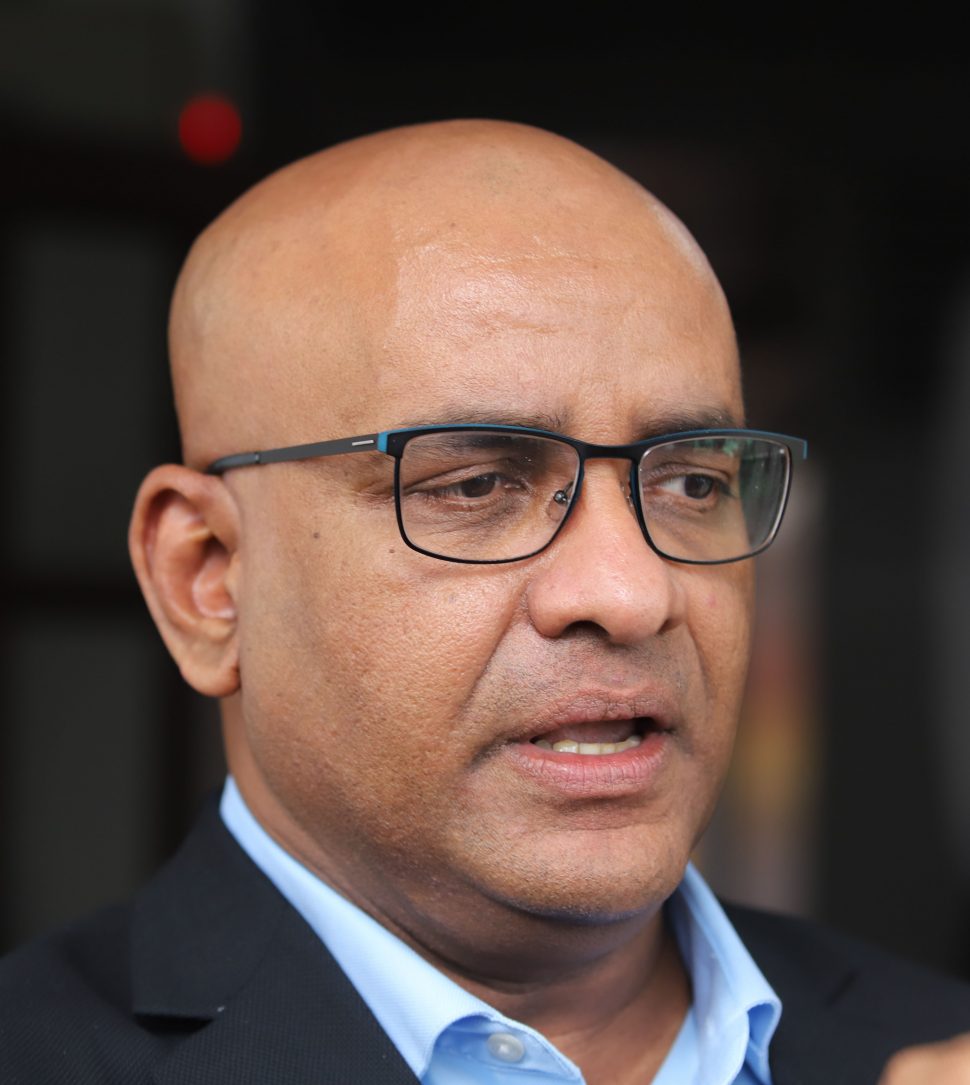With continuing labour shortages especially in the city and on large infrastructure projects, the government is exploring ways to transport workers from far-flung areas to capitalise on the opportunities and it may also allow importing skilled labour from overseas, Vice President Bharrat Jagdeo has said.
“We did a survey and a number of people said they needed jobs. They don’t want to go that far. It is not just finding a job. They want a job within a certain area,” Jagdeo said.
“We are trying now to see how we can overcome that. Can people come down from Linden with buses? Can you get a bus in the morning to bring people down to work and in the evening they go back up. That kind of labour mobility. We will fix the highway. And the same thing with Berbice [transporting],” he added.
According to the Vice President, there is a lot of work being done under Minister of Labour Joseph Hamilton as he looks at ways of “training people and connecting them with opportunities”.
For hinterland and areas in the Essequibo regions, Jagdeo said that the government is trying to get some of the call centres outsourced and established there. In addition, it was looking at attracting youth to agriculture and to show them that it is “not just going in the fields and planting but moving people up the chain in the agriculture sector”.
He said that labour shortage continues to be a complaint from contractors. “Even in Berbice some of the contractors complain that they have labour shortages,” he said.
The Vice President said that the government has also been looking at equipping seasonal workers with skill sets that could earn them money during off-season periods, but for fisherfolk that has been a challenge as many are scared of diversifying or adding to their portfolios. “They are accustomed to a particular work all their lives,” he said.
“We said: ‘Why not let us train you to have a second skill?’ Some people said yes and others were very reluctant,” he contended.
To encourage them, he said it requires time and sitting down in “smaller groups” where they get direct interfacing.
Labour demand issues have been increasing especially since the discovery of oil here and to fill that sector.
According to the findings of a survey carried out by the International Labour Organisation (ILO), over the next four years at least 5,000 new jobs will be created in Guyana’s oil and gas industry with engineering professionals being the main occupational profiles, but the availability of skilled workers at the local level is currently limited.
Titled “Prospective occupational skills needs in the Guyanese oil and gas industry, 2022-2026”, the dedicated survey about occupational and skills needs was answered by 29 companies operating at diverse stages of the oil and gas value chain and from analysis of current job openings published on online platforms.
It found that 15 percent of respondents said engineering professionals are and will be the most in-demand occupation, 11 percent said risk management professionals and 10 percent said it would be ships’ deck crews and related workers. Other occupations named in decreasing order were finance professionals, mining and construction labourers, physical and engineering science technicians, sheet and structural metal workers, moulders and welders and mineral processing plant operators. In addition to those, the report said, online job openings highlight the demand for physical and engineering science technicians as opposed to engineering professionals.
However, the report noted only 49.6 percent of skills for the most in demand occupations are considered widely available in Guyana. Sixty-two per cent of the technical skills were considered scarce in the country but generally available abroad, while with regard to information technology (IT) and transferable skills, the most common perception was one of “wide availability”, 58 and 55 percent respectively, with some caveats.
Meanwhile, total employment was expected to grow by 1,339 full-time positions in 2022 and 2,695 within the next five years, or respectively 34 and 67 per cent vis à vis the current headcount in responding companies. “If a similar growth rate is applied to employment within the whole value chain (estimated at some 8,459 in q3 2021), we speculate that, notwithstanding market dynamics, at least 5,000 new jobs should be created in the most “in demand occupations” for the oil and gas value chain, likely more if all the other occupations are considered,” the report said.
Capable welding, capacity to ensure health and safety compliance, nautical knowledge of vessel operations, rigging, analysis of data and project management represent the technical skills most in demand and have been found to be scarcely available in the country, according to the report. However, while not so extensive gaps exist in terms of IT skills, leadership, analytical capacity, and business conduct amongst the transferable skills, they are still deficient.
Last year, the government hired Indian policy advisor and labour economics researcher Dr Anil Yadav to conduct an assessment of Guyana’s short and long-term cross-sectoral labour capacity needs and design a strategy to guide government-planned immigration and labour policies.
The announcement followed complaints made by local contractors, who told President Irfaan Ali of their difficulties finding workers, including daily and weekly labourers, with the skill sets needed to undertake infrastructural projects currently being executed. When Ali had addressed the virtual Global Business Leadership Forum in April 2022, he highlighted the nature of the complaints from contractors about labour shortage and government’s planned recruitment of an expert to conduct a labour analysis.
The status of Yadev’s work or findings is not known.





